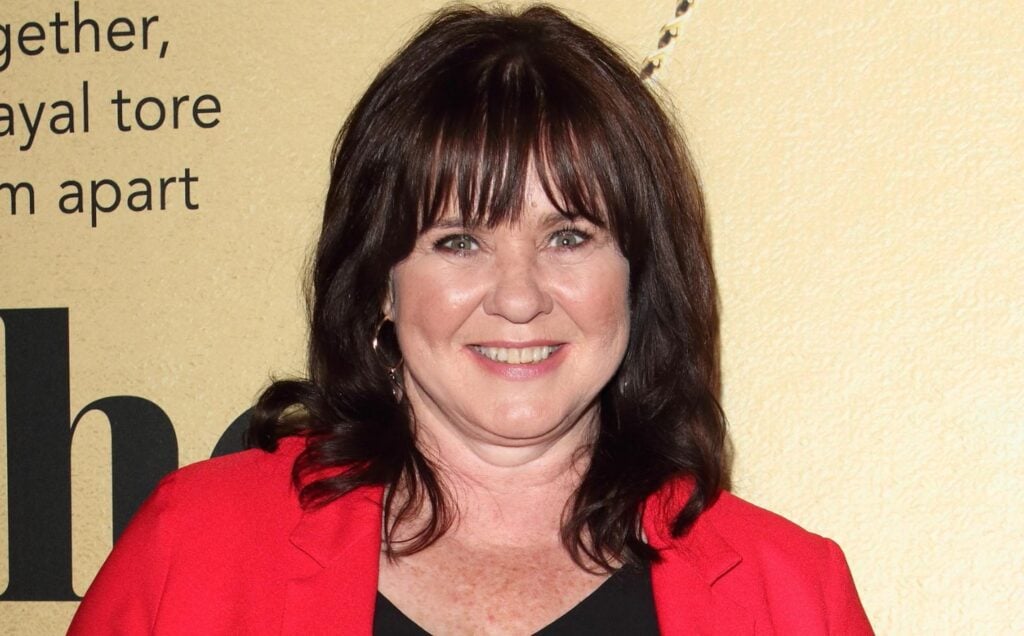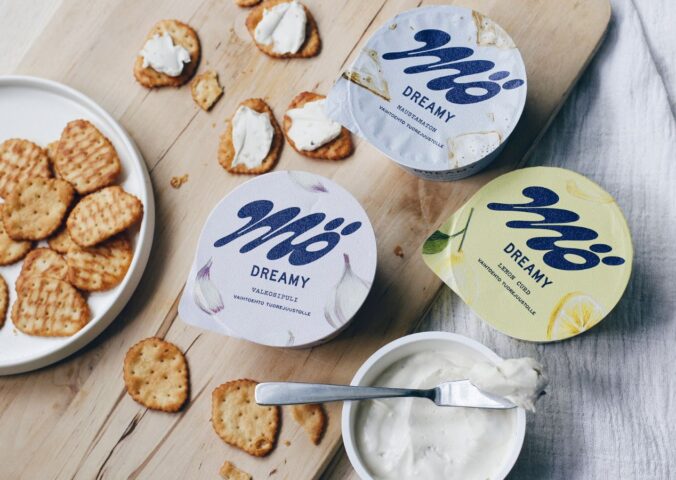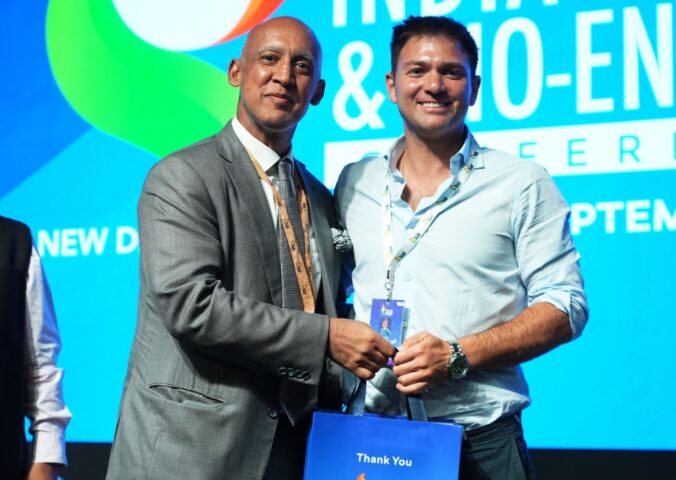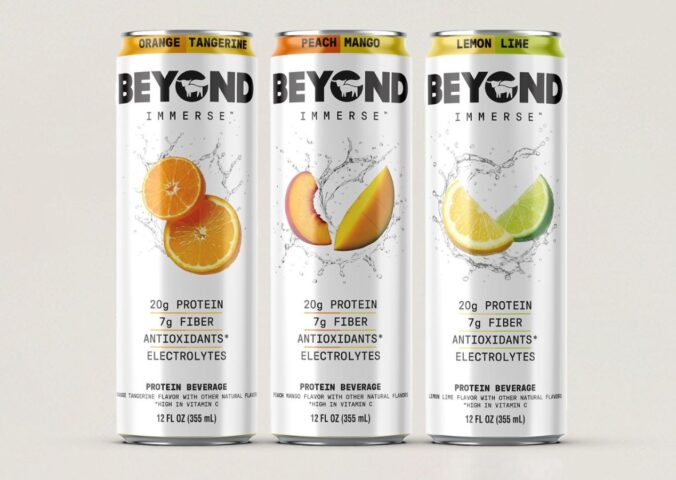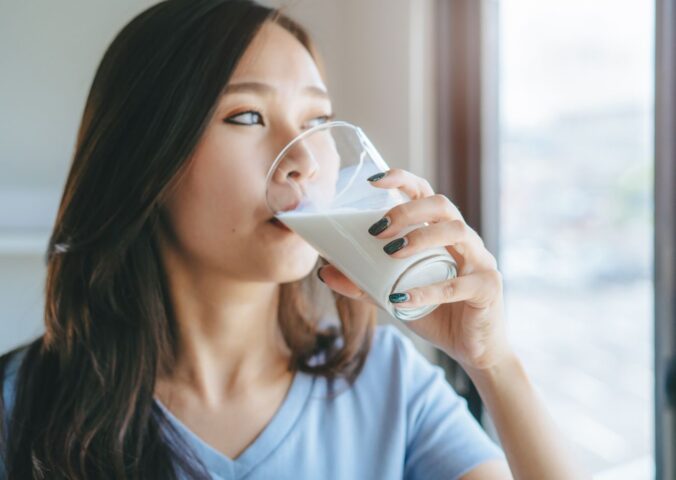In October of last year, British TV presenter Coleen Nolan sparked national headlines after defending Animal Rebellion on ITV daytime show Loose Women. During a discussion about the organization’s Plant Based Future campaign, which saw protestors pour milk on supermarket floors, Nolan urged the public to research the “horrific” animal agriculture industry.
Given that UK daytime TV has a bit of a tendency to paint vegans as weird and extreme (see: pretty much everything Piers Morgan’s ever done), this was an unusual moment. Nolan had adopted a mostly plant-based diet for health reasons the previous year, and has since educated herself on the horrors of UK animal farming.
Loose Women is watched by around a million people each day, the vast majority of whom – like most of the population – won’t be aware of the realities of animal agriculture. Vegans across the country were therefore grateful to Nolan for bringing this subject to such an audience.
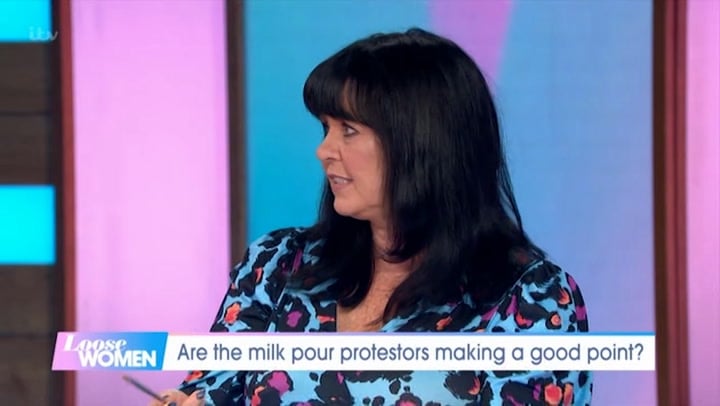
A few weeks after the episode aired, Plant Based News (PBN) sat down with Nolan to discuss plant-based eating, the meat industry, and the pushback she receives from friends and colleagues for speaking out about animal cruelty.
Coleen Nolan goes plant-based
Nolan decided to go plant-based during the first lockdown in 2020 after experiencing a number of health problems.
“I was literally living on painkillers,” she says. “I had this terrible condition in both my feet, and a bad back that was affecting my knees.” She and her daughter Ciara decided to “give the diet a go” after watching the 2017 documentary What The Health, which explores the health impacts of animal foods.
Within two weeks, Nolan says, she was completely off the painkillers. The condition in her feet had also gone. “It was so bizarre. And so we carried on.”
A little while after ditching animal products, she started researching the ethical reasons why people adopt plant-based diets, and her reason for following one switched. “Then obviously it then became about the animals,” she says. “All of a sudden that became a major factor.”
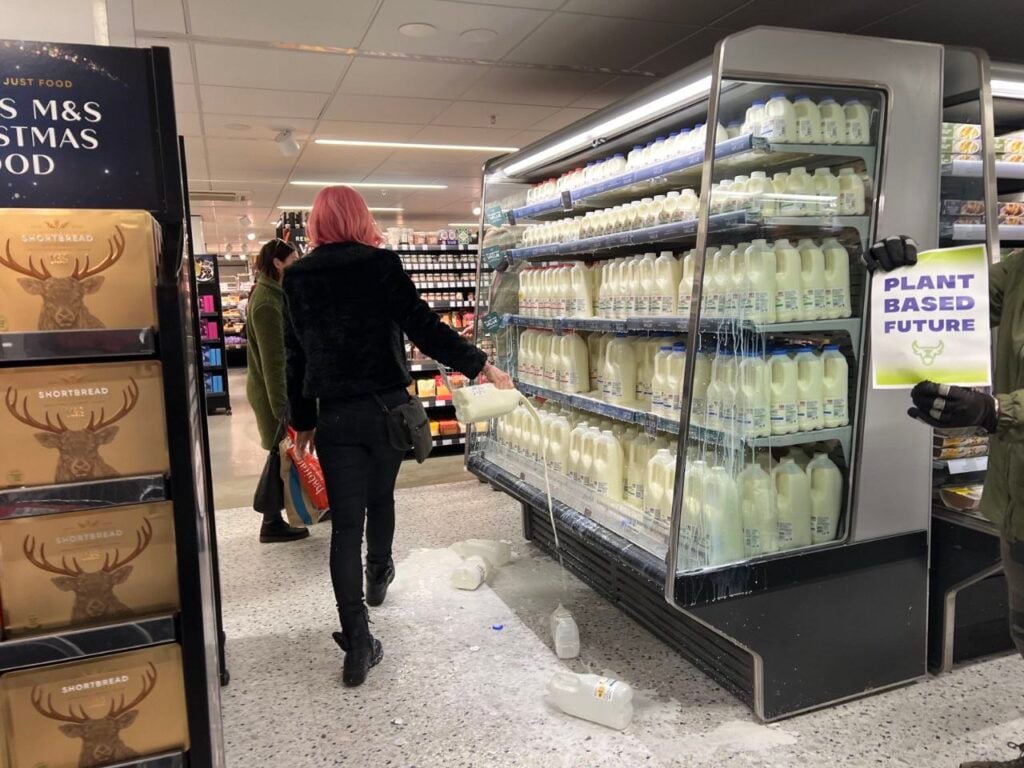
The “humane meat” myth
Nolan spent most of her life turning a blind eye to the reality of where meat had come from. “I kind of built up this story that the animals are looked after, and it’s humane and we have to eat meat. Because that’s how I’ve grown up being told. It’s a total lie, and it’s not humane. Even when it’s humane, It’s not humane. It’s not.”
She isn’t alone. Due to a huge amount of effort, money, and deceptive marketing from the meat industry, the vast majority of the population have no idea how the animals they eat are treated. Around 1.2 billion land animals are killed for food each year in the UK, with 85 percent of these being raised on factory farms. They are confined in cages, crammed in sheds, and also subjected to painful mutilations.
Most people who buy meat do so with little or no understanding of the industry they’re supporting. Many – like Nolan – only learn the truth after seeing farm and slaughterhouse footage on documentaries or online.
“It’s changed my life for the better in many respects but it’s also in some respects changed it for the worst,” she says. “Because now I’ve become educated about it. And before I lived in ignorant bliss, and that was actually an easier world to live in.”
Nolan says that she often feels “helpless” when seeing these videos, adding: “It’s just awful. It’s heartbreakingly awful, and sometimes I lose sleep.
“It traumatizes me really, it makes me really sad for a good two or three days. It really affects me. And in some respects I kind of wish they would show that in a school, because I think a lot of kids would go ‘I don’t want to eat that again ever’.”
Animal agriculture hits home
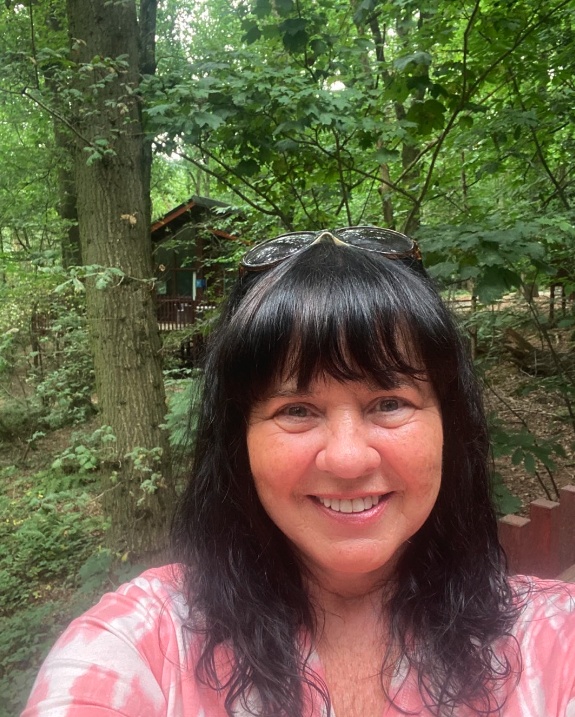
Nolan lives in the English countryside, where livestock farming is widespread and inescapable. After learning the truth about how animals are treated, she started seeing her hometown in a different light.
“I used to love it when I was driving along the road and I’d see fields of cows and fields of sheep, and now it just depresses the hell out of me,” she says. “I don’t get the enjoyment now, I look at them and think ‘I can’t bear it.’”
After noticing that the cows were mooing particularly loudly at a dairy farm near her house, Nolan was told that they’d had their calves taken from them. This is standard practice in the dairy industry, where cows are forced to give birth with artificial insemination each year. “I can’t stand the noise anymore, I can’t stand it,” she says. “It just kills me.”
“Don’t come at me until you’ve learnt all the facts”
Like most people who go vegan or plant-based, Nolan has received criticism and pushback from those who don’t understand that lifestyle.
“If I mention it, they go ‘oh god you’re not one of them are you?’,” she says. “And it’s like, one of what? I don’t want to be that person that tells people off because they’re eating meat in front of me, I think it’s a real personal choice. But don’t come at me until you’ve learned all the facts.”
She says that she often feels frustrated when discussing plant-based eating with friends and colleagues, including some of her fellow panelists on Loose Women.
“They say: ‘Yeah, but I don’t understand why you wouldn’t eat eggs, you know hens just lay eggs.’ And I’m thinking, ‘oh god, I haven’t got time to explain all this in four minutes.’ But if you go into it then they go ‘oh she’s going to lecture us now.’ It’s just really, really hard. But it doesn’t stop me from doing it.”
Nolan also highlights the disconnect the population, many of whom describe themselves as animal lovers, have from their food.
“I go to them: But you’ll sit there and have a Sunday roast. How would you feel if they roasted your dog? It’s the same thing, it’s an animal, and whether you believe it or not they’ve got feelings, I don’t care what you say.”
Misconceptions of veganism
Like many people on a plant-based diet, Nolan has also received unsolicited health advice from medical professionals who believe it’s necessary to eat animal products.
“I’ve had doctors say to me: ‘you’ll be losing out on a lot of vitamins if you’re not doing it right” or ‘you’ll be losing out’. And I’m thinking – I’m eating more healthy now than I’ve ever eaten in my life.”
Misinformation about the perceived “unhealthiness” of plant-based diets is also widespread among the media (see, again, Piers Morgan). Vegans are often depicted as pale, weak, and lacking in key nutrients, leading to a general mistrust of plant-based diets among the population.
“You always get the people going ‘My friend went vegan. She got really ill and nearly died’,” says Nolan. “And I’m like ‘well then she didn’t do it bloody properly.’ She probably just ate a carrot.”
A plant-based future
Despite pushback, Nolan is determined to continue with plant-based eating, and hopes to become fully vegan soon. “I’m still learning every day. I’m still not as informed as I want, it’s just changing your mindset, isn’t it?”
Like many proponents of veganism, she is urging farmers to move away from animal agriculture. “There are farmers out there that are going: ‘you’re going to ruin our livelihood.’ Well then think of a new way of doing it? Why don’t you have fields where you grow fresh food and do it that way?”
This is a view that’s supported by many activists and organizations, including Animal Rebellion. As part of its Plant Based Future campaign, the group is calling on the UK government to support farmers to transition to plant-based agriculture.
As she learns more and more about the ways we treat animals, Nolan says she’s getting more stringent with her views every day. “Now I’m getting more into it, and getting more informed, I’m getting close to pouring milk in a supermarket.”
